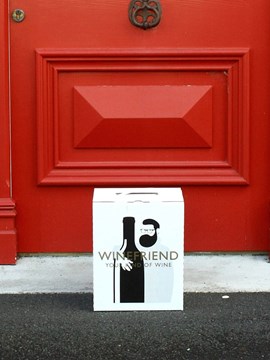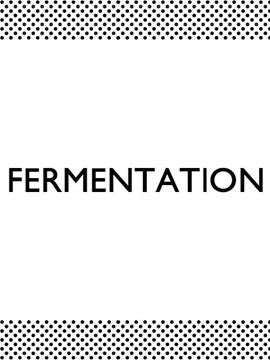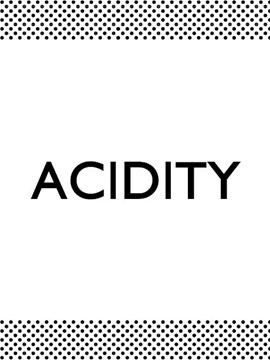Sixteenth-century physician Paracelsus once said that ‘whether wine is a nourishment, medicine, or poison is simply a matter of dosage’ — and here at WineFriend, we just so happen to think this is the ideal philosophy to apply to wine and health. We’re not too concerned over how many calories are in that glass of pinot noir and sauvignon blanc; instead, we’re way more interested in the things that really matter, such as what the antioxidants in red wine can do for us and whether that daily glass or two really can help prevent all manner of ailments down the line.
In this post, we’ll break down the answers to these and other commonly asked wine health questions so you can have all the facts next time you pop the cork or cap on a bottle. A quick note before we begin, though: the health benefits outlined below are linked to moderate wine consumption. Like everything else drink- and food-related, moderation is key! Read on to earn your Ph.D. in wine.
Antioxidants
Many of the health benefits of wine stem from compounds called ‘polyphenolic flavonoids’ — aka antioxidants. They’re found naturally in grape skins and seeds, and because red wines undergo fermentation with their organic material, they’re higher in antioxidants than their white wine counterparts.
But what do antioxidants actually do?
They neutralise free radicals, which cause diseases such as cancer and coronary artery disease. Antioxidants have also been proven to increase brain function and maintain the health of cells, which can aid in lengthening your life and keeping you at the top of your mental game as you age. (More on those later.)
Pretty cool, right? As if we needed another reason to pour a glass of cabernet!

Longer lifespan
Ever read any of those articles about the world’s oldest people? You know: those icons who’ve lived over a century who say the key to their lengthy existences is wine every night?
Well, that’s actually backed up by science. Research into the habitual practices of seniors has shown that moderate amounts of alcohol on a daily basis (about two glasses of wine per night, for example) can lessen the likelihood of early death by 18%.
Heart disease and stroke
When you love wine with all your heart, it’s nice to know it loves your heart right back. In addition to acting as a natural blood thinner (which is helpful in preventing clots that lead to strokes), wine relaxes blood vessels — which improves blood flow and aids in preventing cardiovascular disease.
Resveratrol and cholesterol
As we age, high cholesterol can cause serious health problems — so it’s important to keep it in check in order to reduce the risk of heart disease. Lucky for us, the main antioxidant in red wine (resveratrol) decreases LDL (bad cholesterol) while increasing HDL (good cholesterol).
Photo by rawpixel on Unsplash
Creativity and brain function
We’ve probably all experienced that creative sweet spot — the point between a couple of drinks and overindulgence where those blocks in your brain dissolve and your full creative potential breaks through to take centre stage.
That’s partly a result of the stress-reduction powers of wine (more on that just below), but it’s also an immediate benefit of another unique ability. The chemicals in red wine prevent the brain’s neurons from dying off — leading to improved brain function, protection against dementia, and delayed onset of neurodegenerative diseases such as Alzheimer’s and Parkinson’s.
Lower stress
There’s a reason we pour a big glass of our favorite wine to help destress after a rough day. Alcohol is a central nervous system depressant — which is why wine, beer, and liquor have naturally sedating effects on our bodies.
When you hit a certain level of saturation, if you will, you’ll likely feel downright sleepy. (We’ve all been there!) But one or two drinks have the almighty power to calm our nerves and can actually lower overall stress levels, which doctors believe is key to leading a healthy, well-rounded life.

Gut health
We’ll admit it: the Chiropractic News isn’t typically a goldmine of useful wine information. But a recent article researched by Kathy Simpson offered up a real gem — and that’s that wine is good for your gut health!
Fermented products in general are well-known as a boon to the gut (kefir and yoghurt, anyone?), and wine’s no exception. The articles cites a 2012 study published in the American Journal of Clinical Nutrition that found that subjects who drank red wine showed significantly increased bifidobacterium (one of the most common types of probiotic bacteria).
So what does this mean? It means that wine is a natural source of the probiotics essential to digestive health — an assertion borne out by another study, published in the December 2014 edition of Food Microbiology, which researched 11 types of bacteria isolated from red wine to determine whether or not they could survive the human digestive tract and actually carry out their health benefits in the body. The bacteria survived and thrived!
Adult acne
Adult acne can be unbelievably frustrating, but there’s a small silver lining: when combined with the common acne medication benzoyl peroxide, resveratrol (that potent antioxidant we discussed earlier) can hinder the growth of bacteria that cause this problem. Here’s how it works: benzoyl peroxide completely destroys the bacteria that produce acne, but the effects don’t last beyond 24 hours. Resveratrol slows the growth of this bacteria for a longer time — so combining the two affords you a pretty powerful adult acne treatment. So apply that benzoyl peroxide, and then sit back and relax with a glass of red!

Glaucoma
Glaucoma is an eye condition that results from high eye pressure and causes permanent damage to your vision. But according to the American Health Assistance Foundation, enjoying a small glass of wine every day may be able to reduce your eye pressure for a short time. So sip for the benefit of your sight!
Now that you know what wine can do for your health, why not get this magical elixir tailored to your personal tastes and delivered straight to your door? Join WineFriend today!




